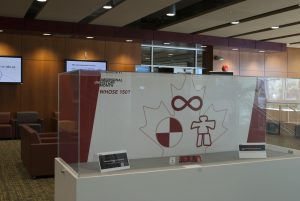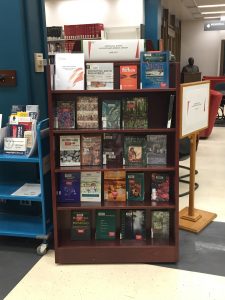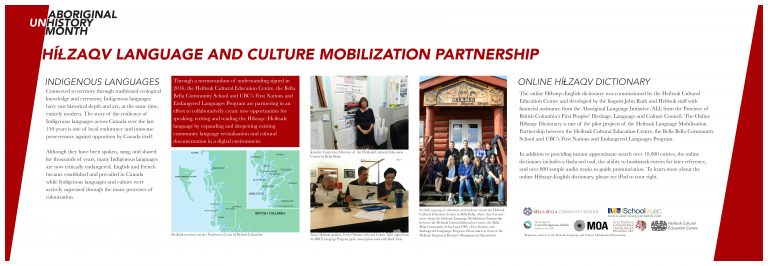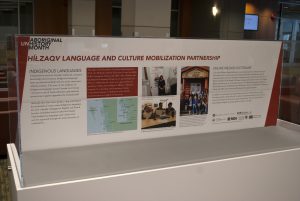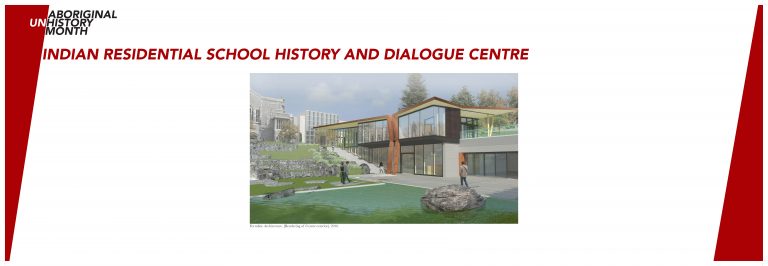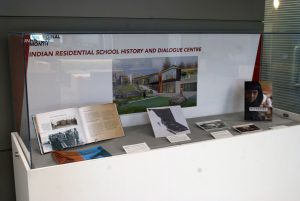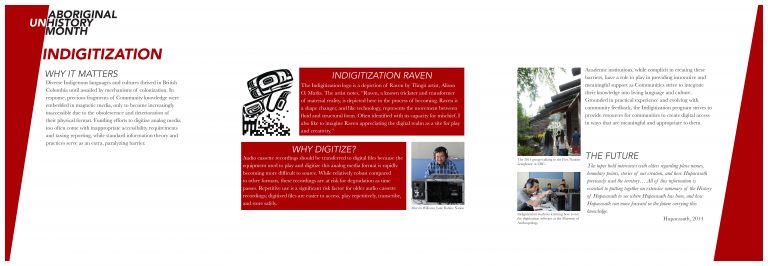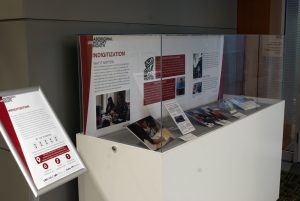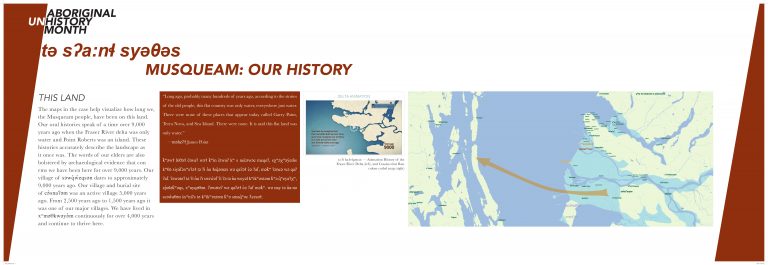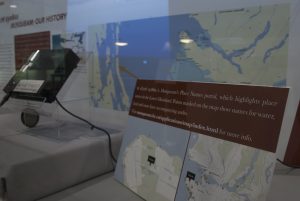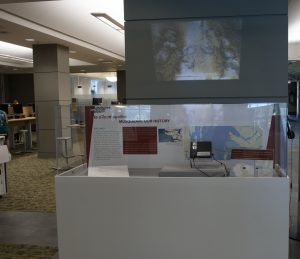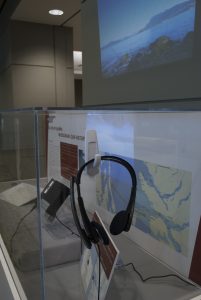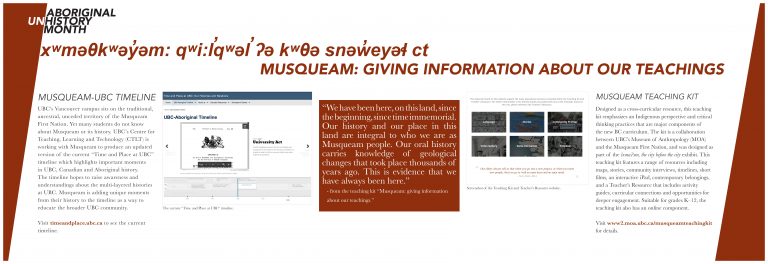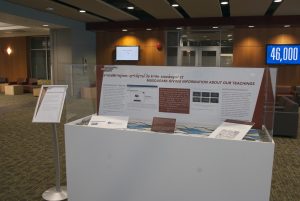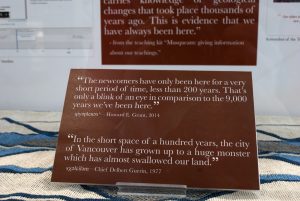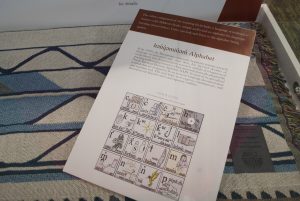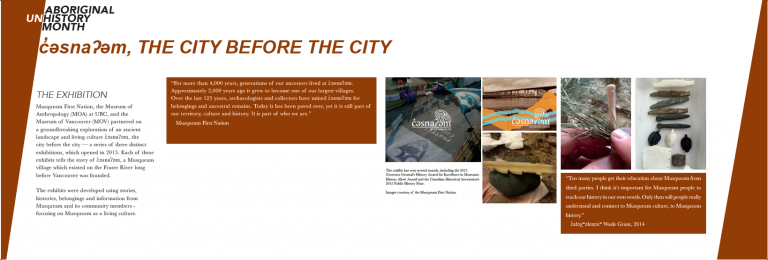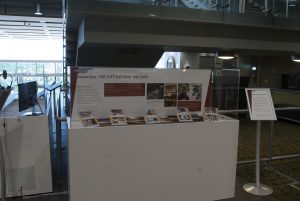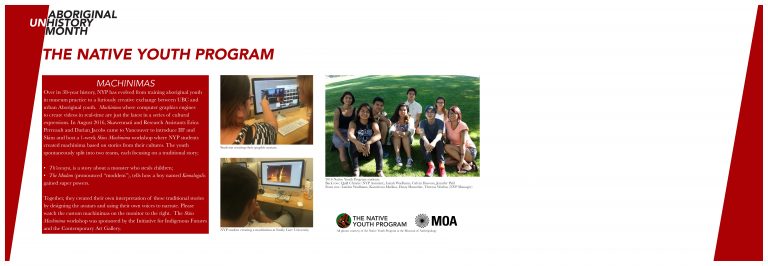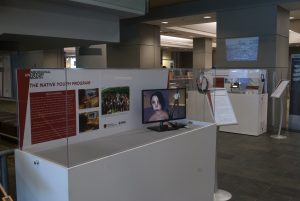In September 2006, the Irving K. Barber Learning Centre at the University of British Columbia Library announced the BC History Digitization Program. The focus of the program is to promote increased access to British Columbia’s historical resources, including providing matching funds to undertake digitization projects that will result in free online access to our unique provincial historical material. Below is a list of successful applicants for 2017.
Heritage Inventory Photograph Digitization
City of Vancouver Archives
15,000
This project will digitize 6,932 35mm photographic negatives from the City of Vancouver fonds. These are photographs that were taken for heritage inventories in 1978 and 1984-85, and each image is usually of one building. Existing item-level metadata in spreadsheets will be enhanced to meet the RAD descriptive standard.
Indigenous Performance Art in BC
grunt gallery (Visible Art Society)
8,625
grunt’s First Nations Performance video collection consists of fifty tapes with runtimes ranging from thirty minutes to two hours. Included formats are ¾ Inch Umatic SP, VHS, Hi 8, and Mini-DV. From this we aim for an equal number of digital masters captured in 10bit Uncompressed Quicktime format as well as access/web copies in both Apple ProRes 422 and H.264 formats.
The Fromson Family Letters
Jewish Museum and Archives of BC
4,200
The Fromson family fonds [1930 – 1975] contains 45 cm of textual records and approximately 100 photographs. There are 150 letters, 100 assorted documents (including Ralph and Anne Fromson’s marriage certificate, including the ornate Jewish marriage certificate: Ketubah), and 100 photographs. In total there are approximately 1700 pages to be digitized.
Rainbow Ranche Collection Digitization
Lake Country Museum and Archives
4,752
The Rainbow Ranche Collection consists of ledgers, diaries, inventories, account books, journals, correspondence, annual reports, incorporation documents, and records of sale and transfer from 1906 to 1974.
BC Archaeology and Early Industry Digitization
Museum of Vancouver
15,000
This project proposes to digitize 2745 artefacts from the BC Archaeology Collection consisting of approximately 1150 surface finds and half of the St. Mungo Cannery collection (1595 artefacts). We aim to complete the digitization of the St. Mungo artefacts in a subsequent project. In addition, we aim to digitize 345 artefacts related to early industry in Vancouver for a grand total of 3090 artefacts digitized.
Forced: dispersal and dispossession of the Japanese Canadian community
Nikkei National Museum
8,858
For the project, the Nikkei National Museum will digitize approximately 2,000 items that are significant to the forced dispersal and forced dispossession of the Japanese Canadian community. The selection of records identified as significant to this project consist of textual records, photographs, and a few artefacts from the following fonds: Tadashi Jack & Kanaye Kay Kagetsu fonds; Campbell, Brazier, Fisher, and McMaster Barristers and Solicitors fonds; Tonomura Family collection; Kishizo Kimura fonds; and the Suematsu Nakatani collection. The fonds selected are representative of various perspectives on Japanese Canadian experiences of dispersal and dispossession from the Second World War.
Prince George Newspapers Digitization Project
Prince George Public Library
7,500
In 2017, the Library intends to begin digitization of the Prince George Free Press beginning with October 31, 1994 to approximately the end of 1999. The searchable images will be loaded into the Prince George Newspaper database.
Since 2007, the project has digitized the Fort George Tribune (1909-1915); Fort George Herald (1910-1916); Prince George Post (1914-1915); Prince George Star (1916-1917); Prince George Herald (1915-1916); Prince George Leader (1921-1923); CNC Student Newspapers (1969-2009) and the Prince George Citizen (1916-June 2003). Citizen issues from 2003 to the current year were already available in digitized format and have been added to the Prince George Newspapers Database.
Digitization of Jack Shadbolt holdings in SFU Art Collection
SFU Galleries
4,393.42
This project plans to digitize 235 works of art by Jack Shadbolt in the SFU Art Collection. There are 111 drawings, 73 prints, 42 paintings and 6 others (mixed media, sculpture). This group of works includes important examples of Shadbolts’s production from 1933-1998 with a wide variety of imagery including landscapes, cityscapes, abstracts and portraits.
Fisherman Publishing Society Photographs
Simon Fraser University Library
15,000
Digitization will focus on 4,500 photographs pre-selected from the total collection of approximately 10,000 photographic images (represented in both print and negative formats), dating from ca. 1960 to 2000. Whenever possible, negatives will be digitized. The majority of photographs are black and white. Images will be identified prior to the project start date based on content and technical quality to ensure a good cross-section of the collection is represented.
Digitization of Le Soleil de Colombie
Societe Historique Francophone de la Colombie-Britannique
6,100
The 30-year collection comprises approx. 31,200 pages of unbound newspapers. Any missing issues might come from bound or unbound copies in other collections. The resource includes photos and text, and all would be available for searching.
Abbotsford Living History Project
The Reach Gallery Museum
10,000
The project will continue the digitization of the Abbotsford News collection of photographs from the 1960s – 1990s. The original formats include 500 original photographs (10% of collection) and 4,500 original negatives (90% of collection). News photographs are being digitized chronologically as all are rich in content regarding significant community events; local businesses; sporting events and participants; school and group histories.
Digitization of BC Sessional Papers, 1952-1969
UBC Library – Humanities and Social Sciences Division & Digital Initiatives
5,688
This project proposes to continue digitizing the next selection of the British Columbia Sessional papers consisting of 40 volumes (1953-1969). So far, with the generous support of the BCHDP grant, we have digitized 76 years (1876-1952) of the Sessional Papers and we hope to complete the entire run of the papers which end in 1982. In addition to the papers, there are also accompanying fold out maps and charts.
Digitization of the Victoria Daily Colonist newspaper: 1961-1970
University of Victoria Libraries
15,000
With 120 reels of microfilm at an estimated 1000 images per reel, we expect to produce up to 120,000 page images. As in previous years, the reels will be sent to the Internet Archive (IA) digitization facility in San Francisco. Once the reels have been scanned they will be loaded into the IA servers (archive.org) and harvested and indexed in our local search engine (http://britishcolonist.ca).
The Province Newspaper Negative Collection, 1950-1962, Digitization Project – Phase III
Vancouver Public Library
13,174.02
We plan to add the remaining 2,600 images of the Province Newspaper Negative Collection to our historical photographs database. The collection depicts important events in Vancouver and the province in the 1950s. Digitizing helps the Library promote their use, while enabling us to conserve them by placing them in frozen storage that slows their deterioration.
The anticipated output is that we will increase the awareness and knowledge of our collection of images depicting mid 20th century British Columbia. The scanned images and descriptive metadata will be added to our online historical database enabling users to search for and find relevant photographs without having to come into the library to do so. In addition, the descriptive metadata provides multiple access points for searching. This is a significant improvement to the card index that we have in the department. Our past experience with digitizing photographs is that improving the ease of searching and making them available online significantly increases use and awareness of the images.
The Gay Games | Celebration 90 Digitization Project (Stage 1)
VIVO Media Arts Centre
6,706
For Stage 1 of this project just under 1/3 of the video recordings will be digitized (there are 150 videotapes in total). They will include Opening and Closing Ceremonies at BC Place, Celebration 90 Cultural Assembly events, pep rallies at the Commodore Ballroom, the Film Festival Gala, Gay & Lesbian bands at the Orpheum Theatre plaza, the August 6th Pride Parade, “Words Without Boundaries” writer’s panel (co-organized by Jane Rule and Jana Williams) and interviews with Games’ organizers, participants, and AIDS Vancouver representatives. These tapes were chosen for the first stage of digitization as they provide a context for understanding how the Games came about, their significance to the Vancouver LGBTQ community, their organizational structure, and some of the social issues and controversies that impacted them. Textual materials will complement and contextualize themes explored in the video materials.
Women in Performance Art Digitization Project
Western Front Society
5,000
The Women in Performance Art Digitization Project will increase the discoverability and use of Western Front’s rich and unique collection of Performance Art documentation. By digitizing performances by renowned artists such as Lori Blondeau, Elizabeth Chitty, Dana Claxton, Kate Craig, Rose English, Mona Hatoum, Rebecca Belmore, Judy Radul, Anna Banana and Jane Ellison and making them available through the Western Front website we will be reaching new audiences, communities and researchers and inviting them to connect with the Western Front Media Archive in a new way. The project will result in digital files for 45 videotapes that will be stored on LTO tape with their accompanying metadata, a process and plan guided by digital preservation best practices.
For more program information please contact:
Bronwen Sprout
Head
Digital Programs and Services
 Background
Background